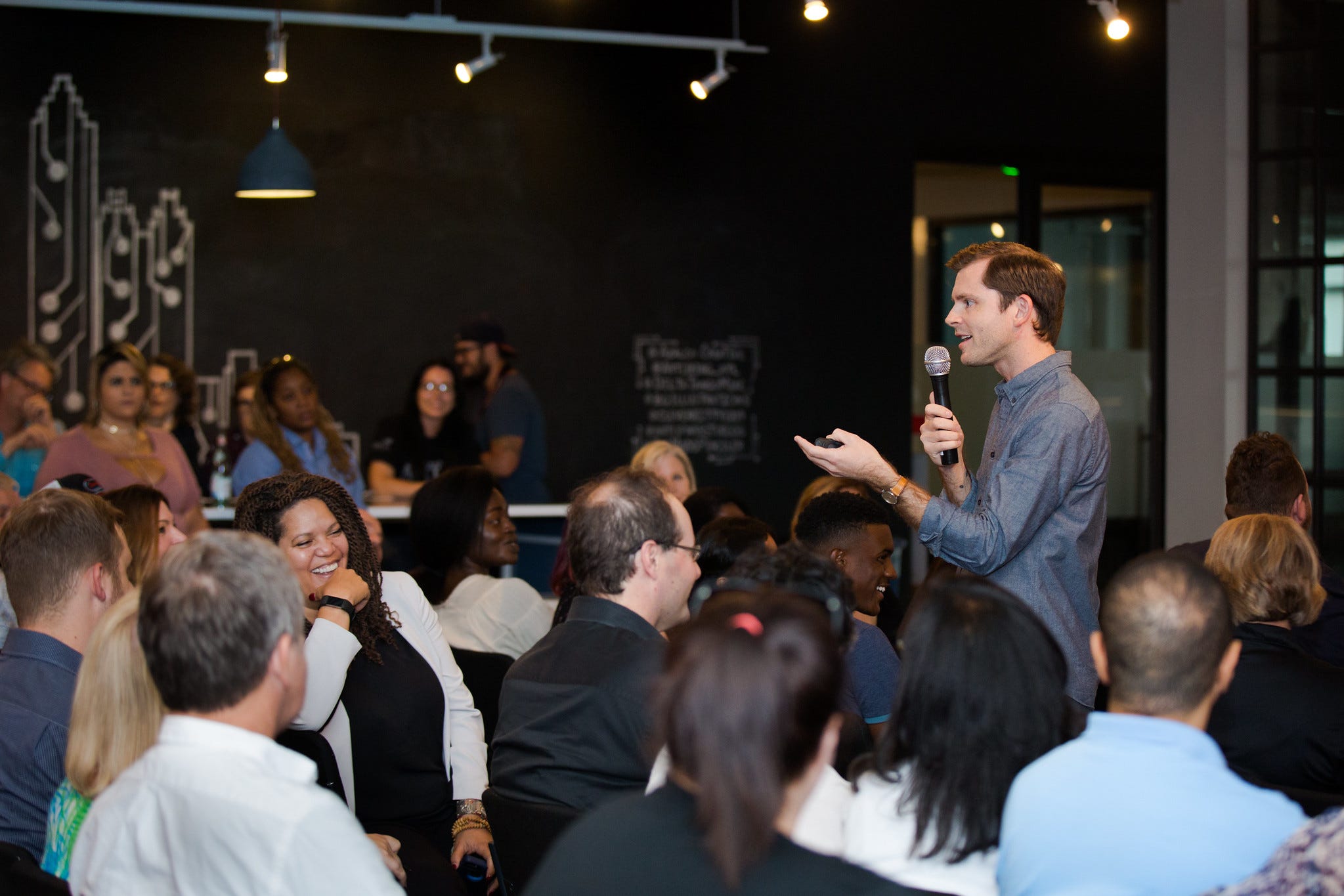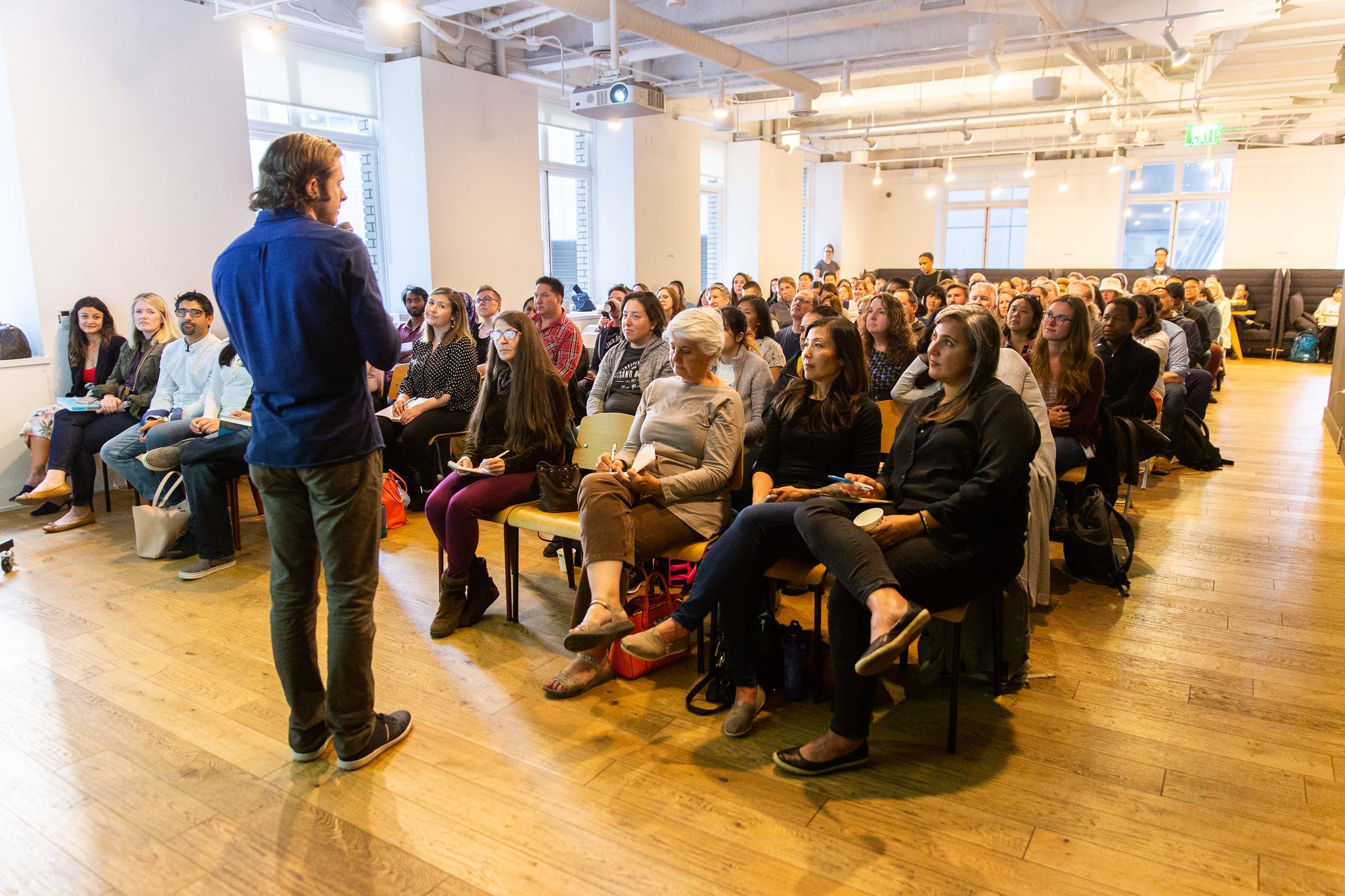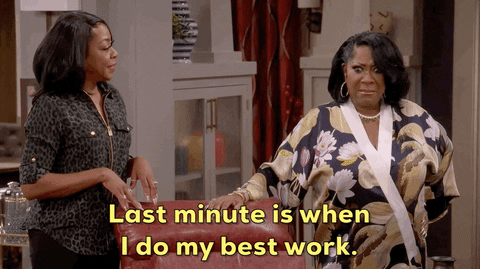Reminder: I’m starting a new, yearlong project! If you’re not into it, you can unsubscribe from any mailing and still receive other newsletters you’re signed up for. Okay, that’s it for preamble. Here’s the post I promised you on Monday. ⬇️ How It Started, How It (Was) GoingI was somewhere in the midst of a long book tour when I realized something was wrong. I’d done this many times before, and I had it down to a routine. I traveled fast: one city per day on average, usually at least five stops a week. Almost every day I woke up in a hotel room and traveled on to the next place. Sometimes I’d have interviews with local radio or TV stations, and in the evening I’d give a talk. The whole process repeated the following day in a different city. If it sounds like a grind, let me be clear: I loved it. I’ll never understand authors who complain about book tour. I got to meet readers who cared about what I had to say, and since I’d been doing this for a long time, many of them came back year after year as I published new books. Still, even though I loved it—something began to feel different. I had started to dissociate, going through the motions of each night’s talk like an actor performing a role. At some point I realized I’d become unsettled. I didn’t know where to focus. And as someone who prided myself on making bold decisions, I was now perpetually indecisive. At night I'd go back to my hotel feeling edgy and discouraged. It didn’t matter if a lot of people had come to the event, or if I’d given a good talk. All I could think about was what was left undone. Whenever I had a moment to analyze, I began to wonder, What was going on? Why do I feel this way—and by the way, what exactly do I feel? The feeling itself was hard to pinpoint.¹ In retrospect, it wasn’t like a fall where you break an arm. There wasn’t a moment where a bone snapped and I felt intense pain. It was more like straining a muscle, where you move in the wrong way for a moment and your body doesn’t like it. Usually when that happens, you think, Well, that’s annoying, but it will be better in a few days. Except it didn’t really get better. It didn’t end with book tour, and it didn’t stop after I took a vacation and tried to reset. It just kind of settled in, a recurring vibration that lurked under the surface. My lack of improvement wasn’t for lack of effort. I got up earlier and exercised more. I tried out new habits. I talked with friends and colleagues to get their advice. When all else proved ineffective, I simply started more projects. Maybe that was the answer, I thought: something was missing, so I had to keep adding things until I found it. I’d spent a lot of time learning to be productive, but after a while I began to realize that such a quest could be endless. There was always something more to be done. My pursuit of optimal human behavior only accelerated the sense of discontent. Turning PointsEventually, I realized I had internalized a system that was fundamentally flawed. This system was called modern productivity, also known as time management, Getting Things Done, inbox zero, and so on. No matter how good I became at it, I would never be able to feel finished. The “things” I would “get done” kept coming! There was no way to complete the work. In fact, the better I got at it, the worse I ultimately felt. This makes sense now—but was very frustrating at the time. To be clear, the problem extended far beyond “work,” even considering the blurred lines between fuzzy categories. The things that I enjoyed felt less meaningful. I went to beautiful places and felt sad. (Then I felt guilty about feeling sad, and talked down to myself. Why should I be sad? I had a great life and was in a beautiful place. But that’s the thing about sadness, isn’t it? It’s a feeling, not a choice.) Some of the difficulty could be traced to my diagnosed ADHD. I had the ability to hyperfocus—which can be very helpful! Unfortunately, this is a superpower with its own built-in fatal flaw. I also had the ability to hyperprocrastinate. (And no, unfortunately I can’t always choose whether to focus or procrastinate. If I could, I’d always choose focus! But in aiming for focus all the time, it ends up leading to burnout and … more procrastination.) Still, it wasn’t just neurodivergence that led to my frustration with the productivity world. In some ways, I think most of what you hear about how to live and work is misguided for everyone, both neurodivergent and neurotypical. I finally began to see that…
So if you too have struggled, it’s not your fault—everyone’s doing it wrong! It’s a collective delusion. But you also need to learn to see things differently. Because if you don’t change, how will anything else? What Can Be Done? Start by Upgrading Your PerspectiveTo be clear, I’m still learning—but I’ve spent years on a reset of sorts. I had to rework my entire operating system. I had to question what I’d learned, and some of what I’d taught. This is what I’m going to share with you over the course of a year: what’s worked and what hasn’t. There’s going to be a mix of personal stories like this one, along with specific ideas, tools, and resources for you to try. (Some strong opinions, too. Be forewarned.) As the year unfolds, I’ll introduce you to some activities and exercises, with an interactive component for those who want it. The goal is to create a deeply meaningful experience for the right people. Who are those people? My ideal readers, of course! I’ll tell you more about exactly who I’m writing for in a future post. Speaking of posts, new ones will arrive every Monday, Wednesday, and Friday at 7am Pacific time. You can read by email, in the app, or directly on the site. What’s the Catch?No catch, This isn’t a “pre-launch” strategy for a course, mastermind, coaching program, or anything else. It will also be ad-free, so there are no sponsors to distract from the message. In fact, nothing is for sale except an option to support the project for others, which costs as little as $6/month with a year’s subscription: I’ll have some special things along the way for paid subscribers, while continuing to keep most of the content free for everyone. If you’d like to share an opinion or connect with other readers, feel free to speak up in the comments section! I’ll include some prompts at the bottom in case they’re helpful. :) That’s it for now. More to come on Friday. Oh, one final thing: I’m glad you’re here! Thanks for reading. ❤️ Conversation Starters (Choose any or none)
1 Alexithymia is the term for “disrupted emotional awareness,” or the impaired ability to identify and describe your feelings. It is more common among people who experience depression, as well as those with conditions such as autism. You're currently a free subscriber to 🌻 A Year of Mental Health . For the full experience, upgrade your subscription. |
Wednesday, January 3, 2024
It Was Going So Well, Until It Wasn’t
Subscribe to:
Post Comments (Atom)
S.A.M. AI Just Flagged This ROKU Setup 🎯
Here's why I'm watching ROKU while everyone else obsesses over the Fed... ...
-
insidecroydon posted: " Become a Patron! What's on inside Croydon: Click here for the latest events listing...





No comments:
Post a Comment